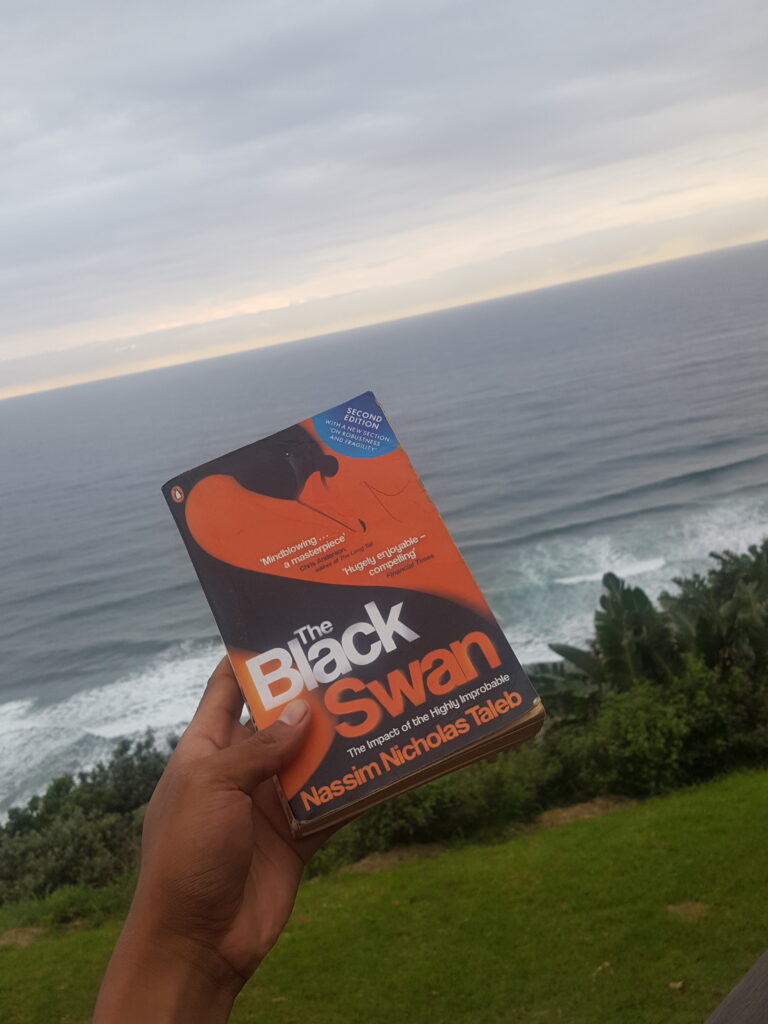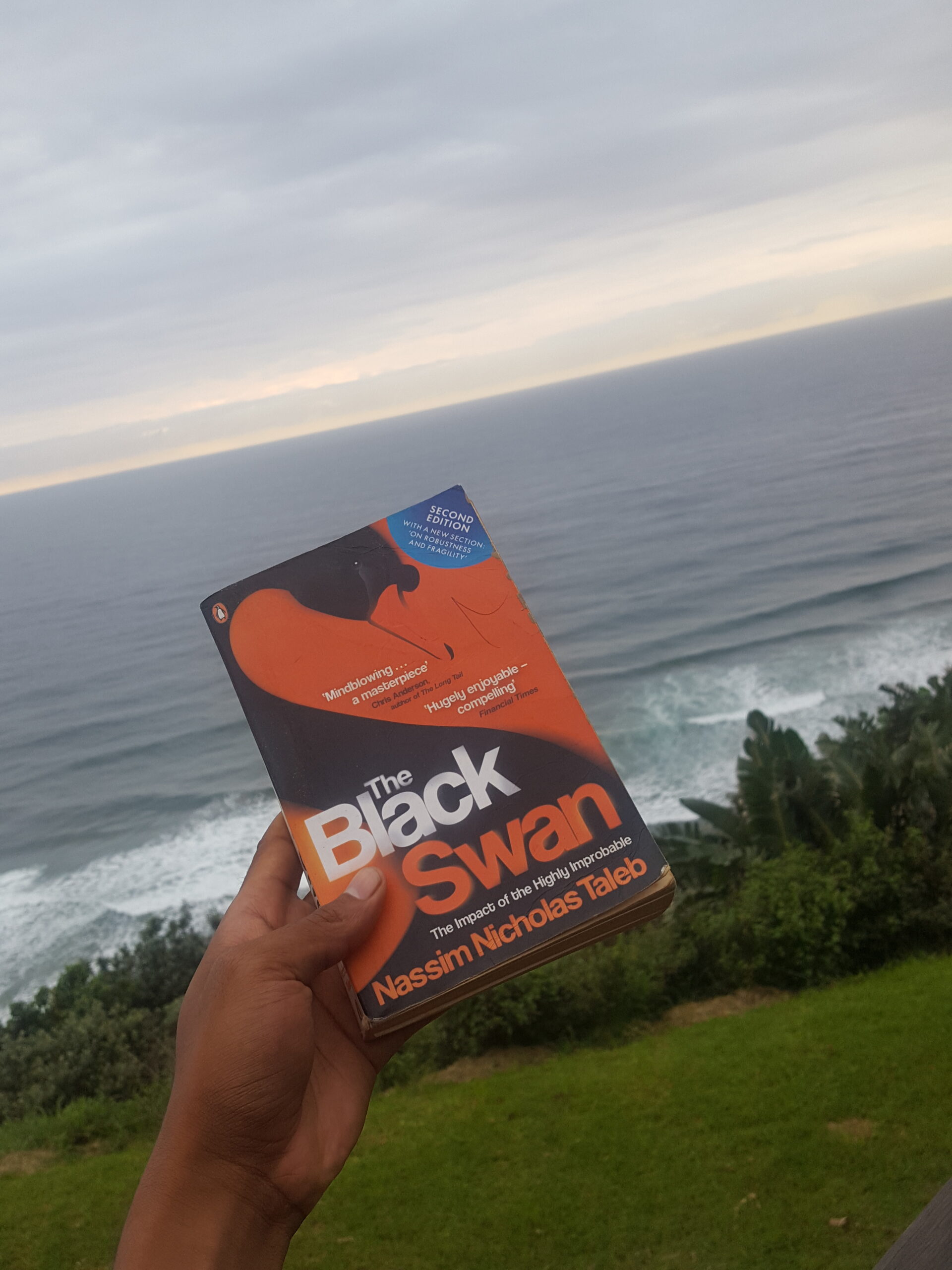
Embracing the Chaos: My Journey Through Nassim Taleb’s “The Black Swan”
In 2012, just after finishing high school, I came across a book that would profoundly shape my approach to life, learning, and thinking—Nassim Taleb’s The Black Swan. At a time when I was searching for frameworks to understand the world as accurately as possible, Taleb’s unorthodox style of writing and thinking introduced me to a whole new realm of ideas. The awkward principles and mental frameworks he presented were not just intellectually stimulating; they were life-changing.
Taleb’s aphorisms, often unconventional, make you pause and rethink what you take for granted. For example, his observations about people taking escalators to the gym or using luggage with wheels only to later work out in the gym, highlight the absurdities of modern life. But beneath these seemingly odd remarks lies a deep logic that makes you reconsider how you approach everyday decisions.
One of the concepts that struck me early on was Taleb’s exploration of how episodic deprivation can act as a stressor that facilitates growth—a principle he delves into more deeply in his later work, Antifragile. This idea, which aligns with the concept of hormesis, resonated with me, especially as I was beginning to explore healthier lifestyles and the benefits of pushing oneself out of comfort zones.
Taleb also introduced me to the world of Logical Fallacies, a critical framework for anyone who wants to see the world clearly. During an intense period of my life, where clarity was essential, understanding these fallacies was like being handed a powerful tool to dissect arguments and beliefs. It led me down a path of further exploration into logic, reasoning, and even higher levels of mathematics like integral calculus and linear algebra. This intellectual journey didn’t stop there; it expanded into programming languages like Python and MATLAB, and later into more advanced topics like fractals, Euclidian geometry, and the work of Benoit Mandelbrot to other mathematicians and great thinkers.
These mental models became invaluable in the real world, allowing me to predict, observe, and understand complex situations with greater accuracy. With knowledge like this, you gain confidence—not just in your ability to see things, but to anticipate and measure them. For me, it was an opportunity to grow my skills and knowledge so that I wouldn’t need to live in fear of the unknown.
One of my favorite examples from The Black Swan is the story of the turkey and the butcher. Every day, the turkey gets more comfortable with the butcher who feeds him, not realizing that the day he feels safest is the day before Thanksgiving when his head is about to be chopped off. This simple yet profound story made me rethink the comforts and assumptions I had inherited from my upbringing. My family, though well-meaning, was poor and limited by their experiences. To grow, I had to take the risk of leaving behind the known and embracing new ideas, even if they were foreign to my immediate environment.
Taleb’s concepts, such as the Ludic Fallacy, the Narrative Fallacy, and Antifragility, further expanded my understanding of the world. The Ludic Fallacy, for instance, warns against the over-reliance on simplified models to explain complex phenomena—a lesson that has served me well in countless situations. The Narrative Fallacy, on the other hand, cautions against our tendency to create stories that simplify and distort reality. And Antifragility, a concept so powerful that Taleb dedicated an entire book to it, taught me the value of embracing uncertainty and chaos as forces that can strengthen us.
These ideas didn’t just stay in the pages of a book; they became part of my daily life. I began practicing and implementing these thought processes, allowing them to shape how I approached challenges and decisions. Admittedly, reading Taleb can sometimes feel like entering an echo chamber—you’re not sure if what you’re encountering is pure brilliance or the ramblings of someone who’s lost their mind. But there’s a savant brilliance in Taleb’s work, a unique perspective shaped by his experience in finance and mathematics that makes him a force to be reckoned with.
In the end, Taleb’s work reminds us that everything is chaotic, and much of what we take for granted is superficial. Society often gets swept away by trivial matters, ignoring the profound insights that could genuinely impact our lives. But by engaging with ideas like Taleb’s, we can begin to see the world differently—to challenge our assumptions, to embrace the discomfort of new perspectives, and to find joy in learning, even when it pushes us out of our comfort zones.
I encourage you to explore these ideas, even if they make you uncomfortable. Taleb has carved out a unique place in the intellectual world, and for that, I thank him. His contribution to society is not just in the theories he presents, but in the way he encourages us to think deeply, to question, and to grow. So take the leap—dive into The Black Swan and see where it leads you. You might just find yourself on a journey of intellectual growth and personal transformation, just as I did.
I’ll leave you with one of my favorite quotes from Nassim Taleb:
“Entrepreneurs are heroes in our society. They fail for the rest of us.”
